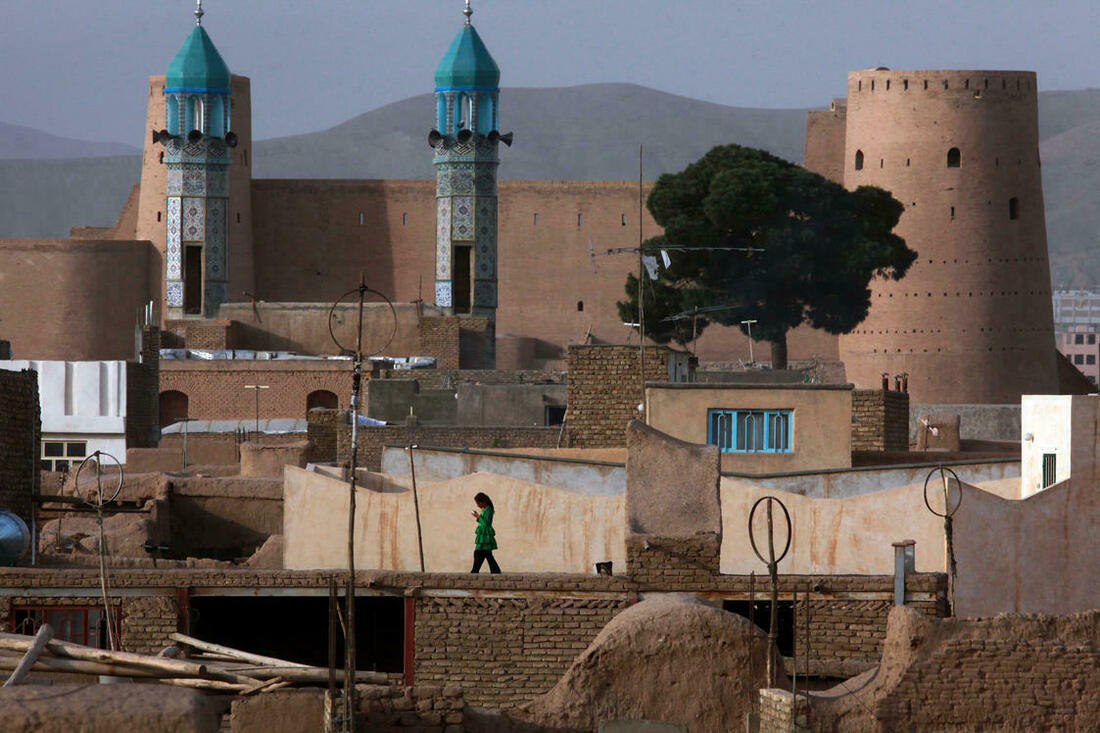Afghanistan Program for Peace and Development

Founded in fall 2021 and formally announced in March 2022, the Afghanistan Program for Peace and Development (AfPAD) amplifies and increases attention to the voices of Afghan peace and development practitioners and scholars nationally and internationally.
This program is a joint initiative of the Kroc Institute and the Pulte Institute for Global Development, both part of the Keough School of Global Affairs. The program is housed in the Kroc Institute's Mediation Program.
Vision:
AfPAD works for and collaborates with Afghans and other interested individuals, groups, and governments to build lasting peace in Afghanistan.
Goals:
AfPAD’s goal is to identify opportunities and foster conditions for an inclusive political process in Afghanistan to assist in the short-term with negotiating humanitarian access, in the medium-term with sustainable development and proposals for constitution-making negotiations, and in the long-term toward a political settlement and sustainable peace.
Objectives:
AfPAD holds four synergistic objectives in 2023-2024:
- Facilitating a Sustained Dialogue and Visioning Group among diverse Afghans to explore opportunities for a negotiated process to address humanitarian, development, and political futures for Afghanistan.
- Conducting research to identify the interests and goals of diverse stakeholders in Afghanistan in preparation for a political process of negotiation.
- Hosting public facing events, webinars, podcasts, and publications to highlight the opportunities for addressing the humanitarian crisis, the constitutional crisis, and the need for a political settlement.
- Supporting local level peacebuilding and sustainable development initiatives.
Principles:
Given the severe human rights crisis in Afghanistan and persecution and exclusion of girls, women, and minority groups, AfPAD is committed to diversity and inclusion of underrepresented groups in all aspects of our programming. AfPAD’s work is guided by five key principles, including:
- Afghan-led: AfPAD is led and advised by professional and experienced women and men from Afghanistan. A core group of Notre Dame faculty with decades of professional experience related to Afghanistan provide expert guidance and institutional support to AfPAD.
- Inclusivity and diversity of perspectives: AfPAD will include diverse perspectives including marginalized and underrepresented populations, minorities, persecuted groups, victims of war, and women from Afghanistan in its activities. AfPAD is inclusive of Afghans of diverse ethnic, political, religious, gender and age groups. The program especially seeks to amplify the voices of and improve human rights for women, girls, and other at-risk groups in Afghanistan.
- Process-driven: Change takes time. Therefore, AfPAD is committed to Afghanistan in the long-term. It is focused on an ongoing process rather than one-off events.
- Democracy and human rights: AfPAD holds an explicit commitment to the principles of inclusive and participatory democratic processes. We believe that human rights and women’s rights are non-negotiable. As such, AfPAD public events will only feature speakers who advocate for democracy and human rights. AfPAD private events may also include individuals or representatives of groups who may disagree with this principle.
- Collaboration: AfPAD collaborates with individuals, groups, and institutions inside Afghanistan as well as international organizations and governments that share AfPAD’s vision.
Learn More about the AfPAD Team »
Image: Daily Life in Herat, Afghanistan. UN Photo/CC BY-NC-ND 2.0